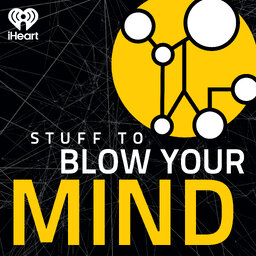The Illusion of Control, Part 3
In this episode of Stuff to Blow Your Mind, Robert and Joe discuss our psychological tendency to overestimate our control over events, with implications for everything from gambling and paranormal beliefs to our movements through everyday life.
In 1 playlist(s)
Stuff To Blow Your Mind
Deep in the back of your mind, you’ve always had the feeling that there’s something strange about re…Social links
Follow podcast
Recent clips

Crab Bag, Part 3: The Crab is a Lonely Hunter
55:55

Weirdhouse Cinema Rewind: La Loba (1965)
1:30:07

From the Vault: Mystery Cults, Part 4
1:00:23
 Stuff To Blow Your Mind
Stuff To Blow Your Mind